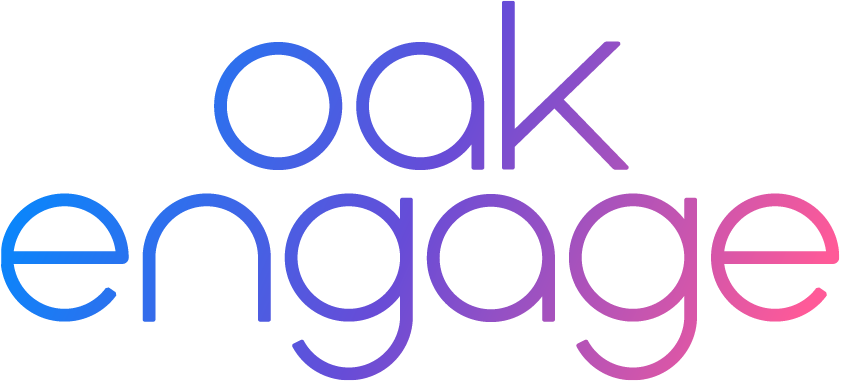From ‘fit checks’ to ‘spot the millennial’ and decoding the younger generation’s slang, the differences between Gen Z and Millennials can seem ever-growing. The generations before and after our own will always have their quirks that we don’t quite understand and frankly, we don’t want to embarrass ourselves trying to keep up with them. But how do generational differences, particularly amongst Gen Z and Millennials, affect work-life balance, productivity, workplace relationships and more?
Comparing Gen Z and Millennials at work
Our recent survey asked over 1,000 working individuals who are either Gen Z (aged 16-27) or Millennials (aged 28 - 43) about their experiences in the modern workplace.
It might come as no surprise that while each generation prioritises different things, they actually still have a lot in common, particularly when it comes to workplace tech and work-life balance.
Adapt or lose your people
Our research identified that almost two thirds of Gen Z intend to resign in the next two years, with 3 in 4 blaming outdated workplace tech for affecting productivity.
The covid pandemic of 2020 had a significant impact on the experience of entering the workforce for many Gen Z-ers. In truth, though, the tech-savviness of these combined generations under 43 comes second nature to almost all of them, which signals a dire need for employers who didn’t adapt during covid, to do it now. If not, they risk losing their best talent.
Millennial managers need to adapt
Many Millennials entered the workforce with Gen X or Boomer managers. The older generations’ work ethic of not being shy of working long hours to get the job done, often sacrificing leisure time with family and friends at the expense of getting ahead at work, seems to have trickled down.
From our research it appears that some of these traits have been inherited by Millennial managers. More than a quarter of Gen Z believe their Millennial colleagues normalise long working hours, and 18% of these think they have no boundaries between work and personal life.
In contrast, Gen Z’s approach of prioritising work-life balance and acknowledging when things get too much, has branded them as lazy with no work ethic by almost one fifth of Millennials.
Our research also showed that Millennial managers are just as, if not more so, overly demanding to their Gen Z teams as their Gen X managers are, or were, to them. Just under 30% of Gen Z reported their bosses' demands to be either ‘very’ or ‘extremely’ demanding, while just over 30% of Millennials said the same of their bosses.
So how do we strike the balance? There appears to be a push and pull between overly ‘demanding’ workloads and trying to ensure the job gets done so people can clock off and enjoy their personal time. Perhaps Millennial managers need to shake off their inherited traits and adapt to a modern work life, potentially where tech can be used to streamline the employee experience.
Burnout is real and has no generational preference
Our research identified that half of both Gen Z and Millennial workers frequently feel burnt out. This could be due to the ongoing noise and distractions that weren’t so present even a decade ago. From Teams notifications to emails that seem to just clog up our inbox, meetings for meetings’ sake and all of the other little things throughout a working week that distract from the actual job we have to do, something's gotta give.
By quieting down the distractions, our workloads can seem more achievable. We have seen great success with customers across a broad range of industries who have achieved improved productivity by simply targeting news in a way that makes it relevant to each recipient. Our platform helped to reduce stories on NatWest’s main intranet homepage by 70%, just by tailoring who receives what with a personalised news experience.
Share the load or let them struggle?
Quite shockingly, Gen Z are half as likely as their millennial counterparts to offer busy colleagues help. This could be down to a variety of factors, whether it’s around their prioritisation of work-life balance and reducing the feeling of burnout, or an uncertainty in how to do someone else’s job. This attitude, however, doesn’t quite bode well for a team environment where people are expected to support others as they may wish to also be supported around tight deadlines or busy periods.
Gen Z chase career progression while Millennials chase salary
Two thirds of Gen Z reported that they intend to resign in the next two years, the most cited reason was that they prioritise career growth over salary and flexible working. It makes sense that the younger generation would want to get as much experience as possible to thrive in their careers.
In contrast, 1 in 2 Millennials plan to quit their job in the next two years, and a competitive salary is more important to them than flexible working and work-life balance, which reflects the earlier point about normalising long hours. Again, it does make sense that people in this age bracket are looking for good salaries if they have gathered many skills and progressed their career to a level they are happy with at this point.
Read the full report
For further insights and expert commentary from workplace psychologists Leanne Elliott and Anna Hislop, access the full report here.
To understand more about how you can adapt your workplace comms and digital workplaces to help both Gen Z and Millennials thrive at work, reduce workplace stress and encourage relationship building, we would love to show you more of our success stories.
Reach out to find out more from our team.



